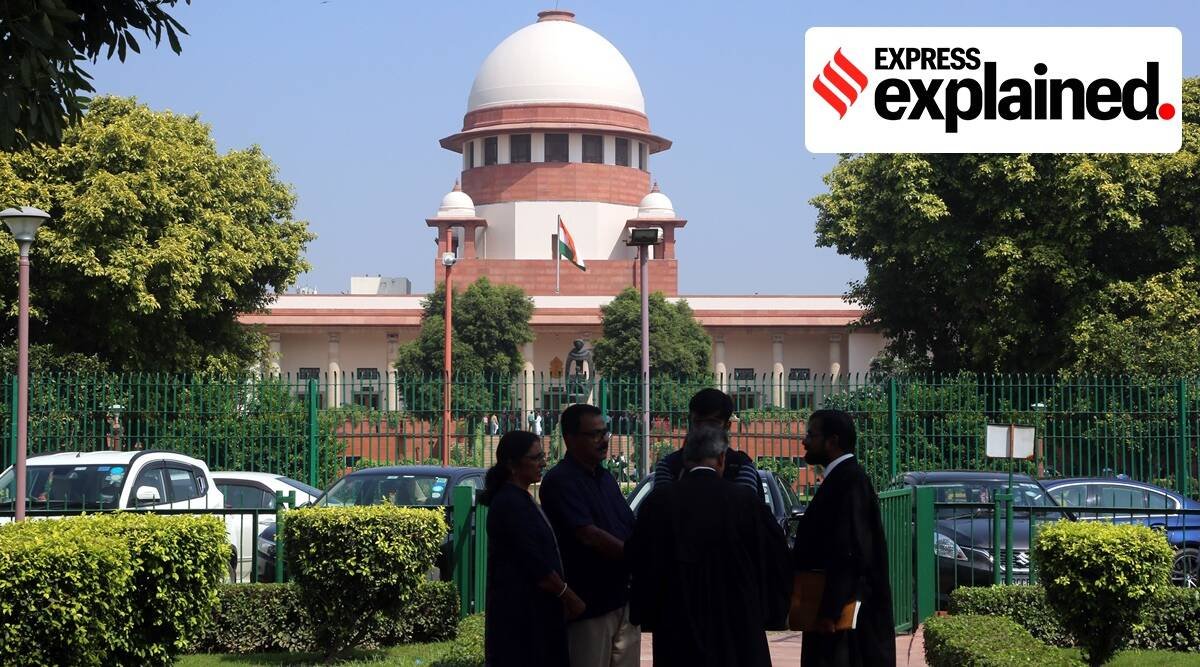” Unity in Diversity PM Modi lawyers for Uniform Civil Code”
Prime Minister Modi has lately been championing for a Uniform Civil Code to promote concinnity in diversity across India. The conception of a Uniform Civil Code is grounded on the notion that all citizens should be treated inversely under the law, anyhow of their religion, estate or gender.
PM Modi believes that a common law will help make a further indifferent society by guarding the rights of every citizen. In this blog post, we will explore the implicit benefits of enforcing a Uniform Civil Code and dissect the argument for its relinquishment.
1.Understanding the Uniform Civil Code( UCC)
The Uniform Civil Code( UCC) is a proposed legal frame in India that seeks to replace the colorful particular laws presently in practice with a livery set of laws governing matters similar as marriage, divorce, relinquishment, heritage, and race.
particular laws are grounded on religious Holy Writ and customs, which differ among communities in India. These laws have led to conflicts, demarcation, and unstable treatment for women and nonage groups.

In 2015, P M Modi’s government issued a statement in the Supreme Court calling for a debate on the UCC. This move was seen as an attempt to move towards a further inclusive and indifferent society. The UCC seeks to bring all citizens under the same legal marquee, irrespective of their religion, estate, or gender. It aims to produce a harmonious society where everyone is treated inversely under the law.
While the idea of a UCC isn’t new, it has been met with resistance from colorful religious and political groups. Some argue that the UCC would undermine artistic diversity, while others feel that it would bump on their religious beliefs and practices.
still, proponents of the UCC argue that it would be a step towards creating a truly temporal and progressive society, where individualities aren’t discerned against grounded on their religious identity. As India moves towards getting a ultramodern and inclusive republic, the debate on the UCC continues to gather instigation. Whether or not the UCC will be enforced remains to be seen, but one thing is certain the discussion around it’s important in shaping India’s future.
2.The Current script Multiple particular Laws in India
India is a country known for its diversity in culture, religion, and customs. still, this diversity has led to the actuality of multiple particular laws that govern colorful aspects of life similar as marriage, divorce, heritage, and property rights. These particular laws are grounded on different persuasions similar as Hinduism, Islam, Christianity, and Sikhism.
The actuality of these particular laws has been a subject of contestation and debate for numerous times. Some argue that these laws cover the artistic identity of colorful communities and give a sense of security. Others, still, feel that these laws produce a division among the citizens of the country and undermine the conception of a unified nation.

One of the main problems with these particular laws is that they distinguish against women. For illustration, under the Hindu law, a son has only half the right to heritage as compared to a son. also, under Muslim law, a hubby can disjoin his woman by simply saying the word” talaq” three times, while a woman can not do the same.
also, these particular laws frequently disaccord with each other, creating confusion and legal battles. For case, in cases ofinter-faith marriages, it becomes grueling to decide which particular law should be applied. Overall, the current script of multiple particular laws in India presents several challenges and enterprises.
To address these issues, the Indian government has been considering the perpetration of a Livery Civil law( UCC) for several times. The UCC aims to replace all particular laws with a common set of laws that apply to all citizens anyhow of their religion. This move, if enforced, could give a sense of concinnity and cohesion among the different population of India.
3.PM Modi’s Call for UCC The Need for Unity in Diversity
In a country as different as India, the actuality of multiple particular laws can produce confusion and disharmony among its citizens. particular laws grounded on religion govern matters similar as marriage, divorce, heritage and relinquishment. This has led to situations where different people are subject to different laws grounded solely on their religious identity, leading to difference and inconsistencies in the legal system.

Prime Minister Narendra Modi has supported for a Livery Civil law( UCC) to address this issue. In his vision, a UCC would give a common set of laws for all citizens, irrespective of their religion or race. It would establish one set of rules and regulations to govern particular matters, creating a position playing field for all Indians. PM Modi argues that this move is pivotal to promote social harmony and integration in a country with different societies and religious beliefs.
He believes that a UCC will break down religious and collaborative walls, and help make a sense of public concinnity. also, the preface of a common civil law will bring translucency, responsibility, and pungency to the legal system, further strengthening republic in the country. still, enforcing a UCC isn’t without its challenges.
It has been blamed for being asleep to religious sentiments, and for assessing a uniformity that might not take into account the complications of different communities. Critics argue that a UCC could be perceived as a trouble to the autonomy of nonage communities, which are defended by the Constitution.
Despite these challenges, it’s worth noting that there are exemplifications of countries that have successfully enforced a UCC. Countries like France, Japan, and Turkey have introduced civil canons that apply inversely to all citizens. It’s possible that India could also profit from such a system.
4.Pros and Cons of enforcing a UCC in India
As with any major policy change, enforcing a Livery Civil law( UCC) in India has both advantages and disadvantages. Then are some of the crucial pros and cons

- Equality A UCC would give equal rights and protection to all citizens, anyhow of their religion or gender. This would be a significant step towards gender and social justice.
- Simplification The multiple particular laws in India produce confusion and complexity in legal proceedings. A UCC would simplify the legal system and make it more effective.
- Unity A UCC would promote concinnity among different religious communities in India by treating them all inversely under the law.
- Denomination A UCC would help uphold India’s denomination and separate religion from law, which is a pivotal principle for a republic.
- Artistic Differences India is a different country with numerous artistic and religious differences. Some people argue that a UCC would go against these differences and put a invariant law on everyone, which could beget pressure.
- perpetration enforcing a UCC is a complex process that could face legal, political, and social resistance. There’s also the challenge of icing that everyone follows the law, which could take time.
- Conflict with particular Laws particular laws in India are deeply rooted in artistic practices and beliefs. Replacing them with a UCC could spark contestation and pushback.
- Impact on nonages Some nonage groups worry that a UCC could potentially strip them of their rights and produce further demarcation against them. Overall, the pros and cons of a UCC perpetration in India need to be precisely counted and balanced before any action is taken.
- While a UCC could potentially promote concinnity and equivalency, it’s pivotal to insure that nonage rights are defended and artistic differences admired. The government must consider all these factors before making any significant changes.
5.transnational exemplifications of Countries with UCCs
numerous countries around the world have formerly enforced a Livery Civil law( UCC) with varying degrees of success. These countries serve as exemplifications of how a UCC can be successfully enforced and the positive impact it can have on a society. One similar illustration is France, where a UCC was first enforced in 1804. The French Civil law, or Code Napoleon, aimed to unify the laws of the country and produce a fair and equal legal system for all citizens.

The law has been revised several times over the times, but the principle of a UCC remains complete. Another country that has enforced a UCC is Turkey. In 1926, the Turkish Civil law was introduced, which aimed to produce a temporal legal system and end demarcation against women. The law abolished polygamy, gave women the right to bounce, and established civil marriage as the only legal form of marriage.
The law has been revised several times since also, but it remains a foundation of the country’s legal system. Tunisia is another country that has enforced a UCC. The country’s law of particular Status, introduced in 1956, abolished polygamy and gave women the right to bounce and seek divorce.
The law has been seen as a symbol of women’s rights and has been a major factor in the country’s progressive station on gender equivalency. While these exemplifications show that a UCC can be enforced successfully, it’s important to note that each country has its unique circumstances and challenges. India would need to precisely consider its own situation and apply a UCC that’s suitable for its citizens.
6.Addressing enterprises and examens of UCC perpetration
The perpetration of a Livery Civil law( UCC) has been a content of heated debate in India for numerous times. Some critics argue that enforcing a UCC would be a violation of individual religious freedom, and that it could lead to the corrosion of artistic diversity in the country.

still, these examens don’t take into account the numerous benefits of a UCC. One of the main benefits is that it would give all citizens with the same legal rights and protections, anyhow of their religion. This would insure that every citizen is equal before the law, which is a abecedarian tenet of a popular society. also, a UCC would promote gender equivalency and social justice by doing down with discriminative laws that live in colorful particular laws.
For illustration, the practice of triadic talaq in Muslim particular law, which allows men to disjoin their women simply by saying the word” talaq” three times, has been supposed unconstitutional by the Supreme Court of India. A UCC would insure that this practice is abolished across all persuasions and particular laws.
Critics also argue that a UCC would be delicate to apply given India’s different population and the vast differences in artistic and religious practices across the country. still, it’s important to note that several countries around the world, including France and Turkey, have successfully enforced UCCs despite analogous diversity challenges.
Conclusion
In conclusion, PM Modi’s call for a Livery Civil law( UCC) in India is a bold move towards promoting concinnity in diversity in the country. The current script of multiple particular laws in India has led to inequalities and disagreement, and the perpetration of a UCC could address these issues and give a position playing field for all citizens.
still, the pros and cons of enforcing a UCC need to be precisely estimated, and enterprises and examens must be addressed before any concrete way are taken. International exemplifications show that UCCs can be successfully enforced in different societies, and India can draw precious assignments from these gests . The UCC debate has been ongoing in India for several decades, and it’s high time that the country takes a decisive step towards achieving legal uniformity and social justice for all citizens.
ALSO READ:“Championing Change: Inspiring Leaders Share their Advocacy Journey”







